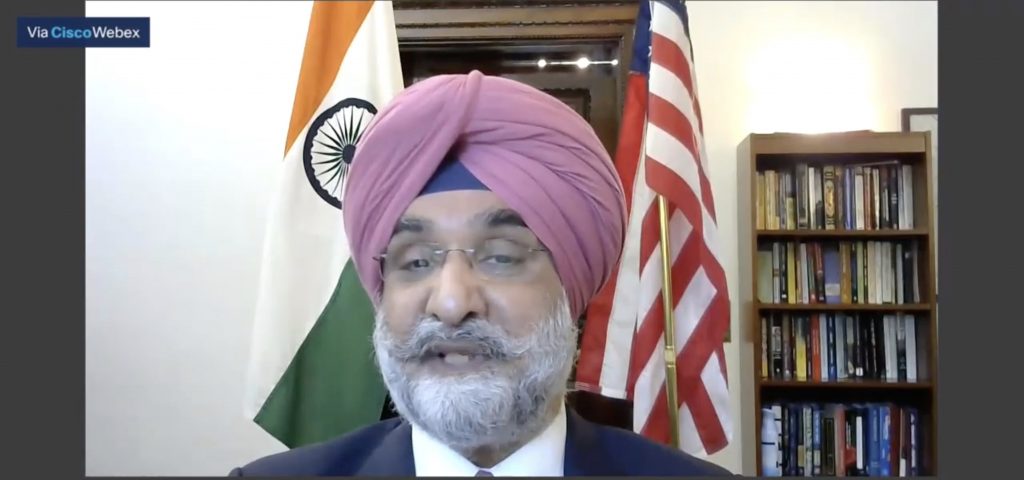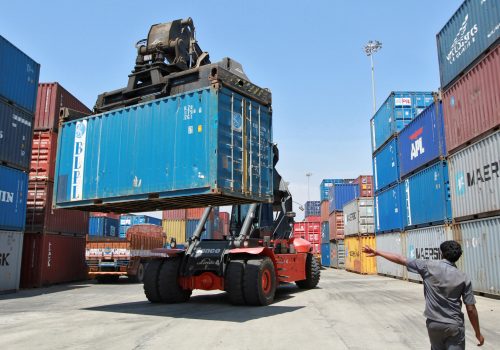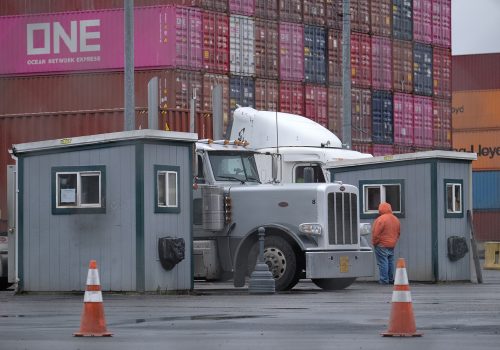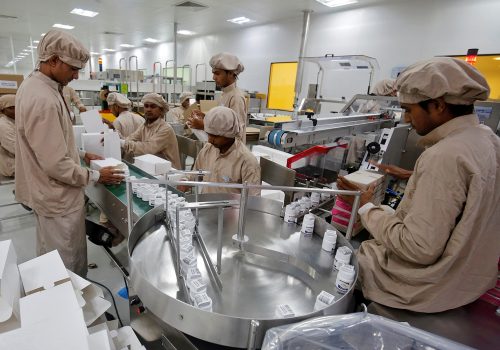On Thursday, August 20, 2020, the South Asia Center and the Federation of Indian Chambers of Commerce and Industry (FICCI) were joined by Indian Ambassador to the United States Taranjit Singh Sandhu for a timely conversation on India-US partnerships in global value chains. FICCI President Dr. Sangita Reddy and Ambassador Sandhu provided opening remarks; FICCI Deputy Secretary General Manish Singhal and FICCI Senior Vice President Uday Shankar moderated the conversation; and FICCI Secretary General Dilip Chenoy gave a concluding statement.
Dr. Sangita Reddy opened the dialogue by emphasizing the substantial progress both India and the United States have made in improving economic ties, and the strong foundation their relationship is built on. “India plays a central role in economic development in Asia, and the United States proudly supports India’s rise as a global power and a model of democratic principles,” she said. Dr. Reddy closed by calling for the industry and diplomats of both countries to capitalize on the foundations fostered by leadership so the Indian market can expand its potential and cement its status as a sought-after destination for international investment.
Following Dr. Reddy, Ambassador Sandhu shared his vision of India’s investment climate and how the country strives to be an integral part of global business value chains. He noted that, amid the pandemic, the United States and India are closer than ever due to their shared values, their mutual appreciation for each other’s vibrant democracies, and their open and multicultural societies; it is “the most transformational of our times,” asserted to the Ambassador. India already carries various strengths—democratic principles, a huge domestic market, and a skilled workforce, to name a few—but hopes to further promote business and attract investment via the recent Atmairbhar Bharat initiative. To further catalyze domestic growth, India must create a more attractive ecosystem by pushing reforms across sectors, strengthening its economic capacity, and further integrating with global value chains and the international economy. Regarding US-India trade relations, Ambassador Sandhu emphasized the need to find innovative means to cooperate on technology and agricultural production as well as work collectively—government and industry together—towards unlocking India’s potential.
Subsequent to Ambassador Sandhu’s opening remarks, Uday Shankar guided the conversation through a series of questions. First addressed were India’s emerging e-commerce policies and the concerns accompanying such reforms. Ambassador Sandhu highlighted India’s fast-paced digitization, arguing that the country is now in the fourth Industrial Revolution. Indeed, the growth of the digital economy and the ensuing new business models have brought forth certain regulatory issues across the world, not just in India; according to the Ambassador, there is a need to ensure that the growth of the e-commerce sector is not impacted by challenges such as copyright infringement, piracy, national security concerns, and others. The idea behind India’s e-commerce policies is to address the aforesaid challenges in a manner satisfactory to all stakeholders.
Of further concern was the recent suspension of H1-B visas by US President Donald Trump. Ambassador Sandhu explained the importance of highly skilled Indian professionals in the United States: such individuals fill important roles in the technology industry, thus generating jobs and rendering American companies locally competitive. Ultimately, they play a crucial role in US economic success and help to support the United States as a global leader in technology. The session wrapped up with a series of questions from relevant stakeholders, covering topics such as securing greater capital and equity from the US market, to which the Ambassador responded that there is tremendous interest in India and current projects are in the works.
Overall, the event with Ambassador Sandhu emphasized the importance of bolstering US-India trade relations, the shared democratic values undergirding their strong bilateral relationship, and the enormous potential value of a comprehensive bilateral trade agreement for both countries.
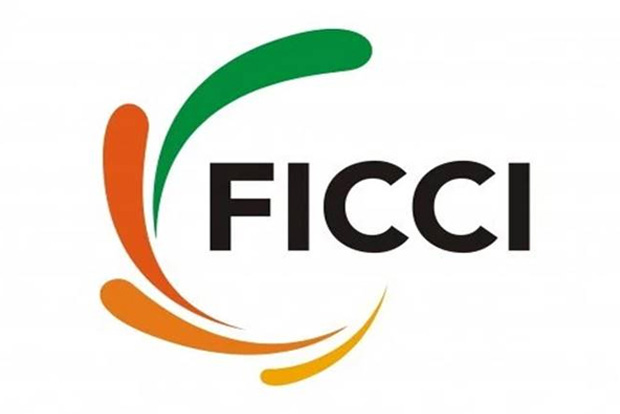
Established in 1927, FICCI is the largest and oldest apex business organisation in India. Its history is closely interwoven with India’s struggle for independence, its industrialization, and its emergence as one of the most rapidly growing global economies.

The South Asia Center is the hub for the Atlantic Council’s analysis of the political, social, geographical, and cultural diversity of the region. At the intersection of South Asia and its geopolitics, SAC cultivates dialogue to shape policy and forge ties between the region and the global community.
